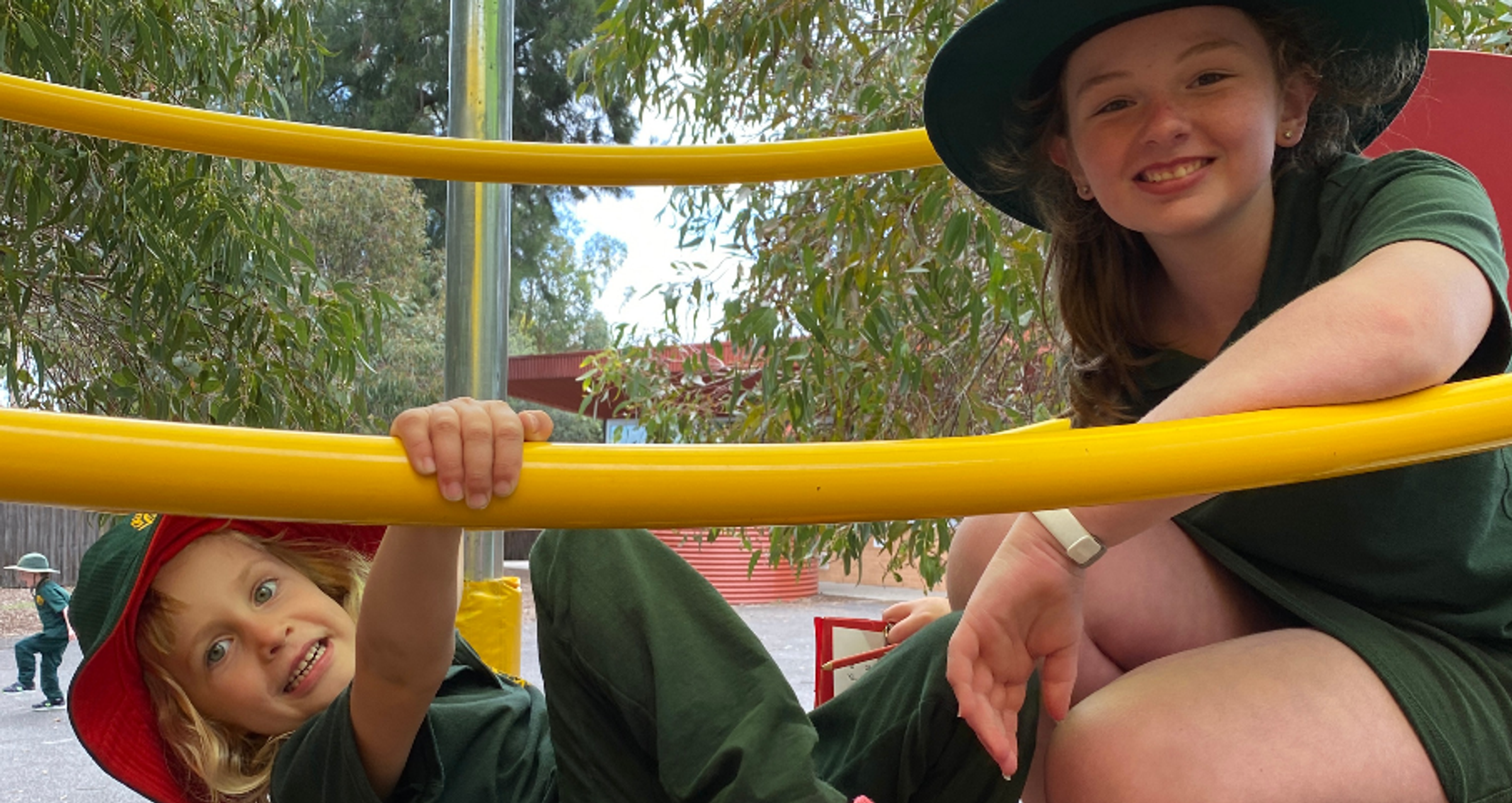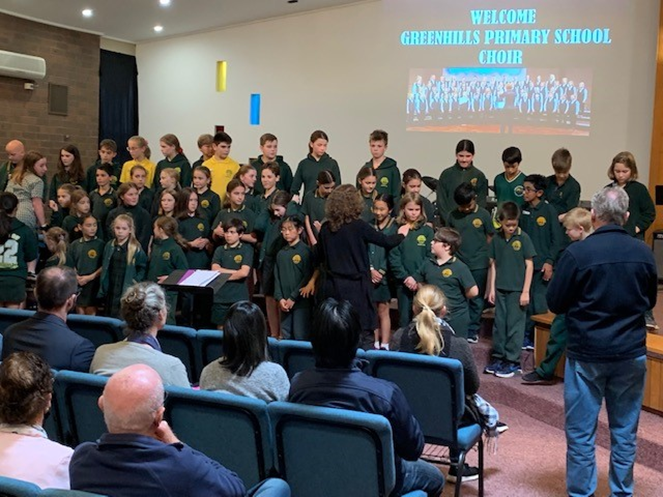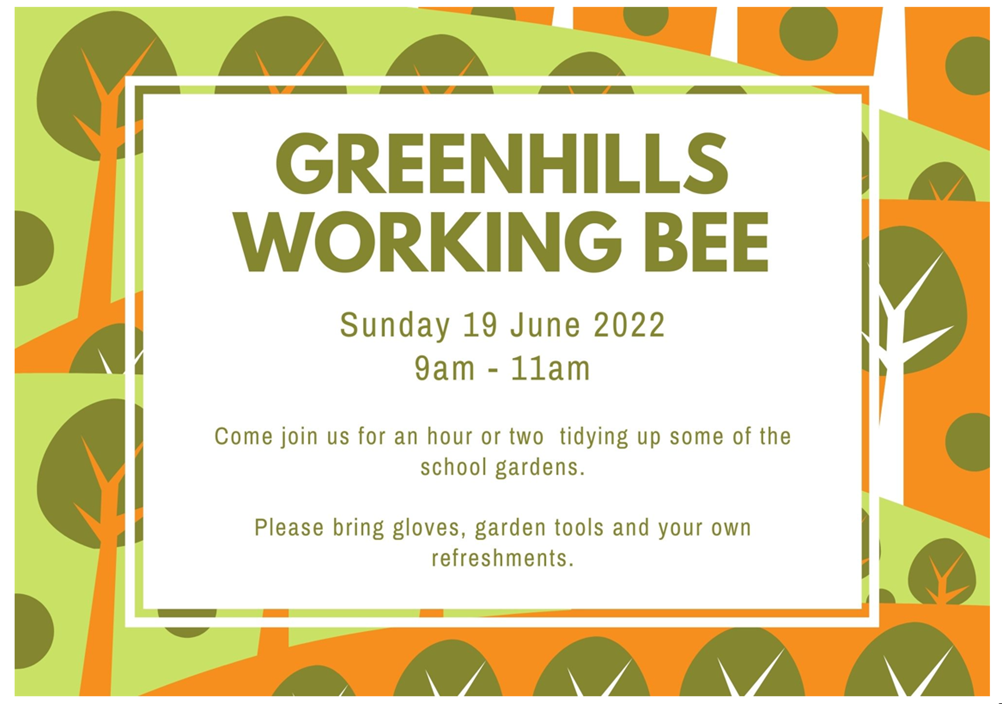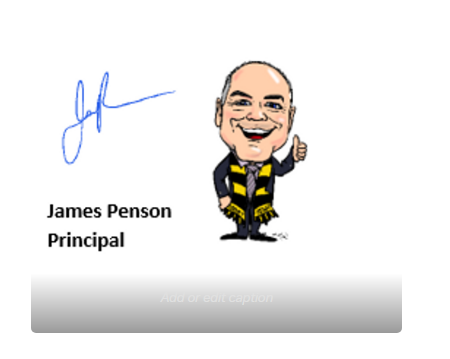Message from the Principal
James Penson

Message from the Principal
James Penson


Last Friday our Greenhills Choir performed live for the first time since the pandemic started. It was great to hear the combined voice of these talented and dedicated students as they sang in front of a very appreciative audience at the Salvation Army in Greensborough. The highlight for me was the choirs performance of “Reconciliation” by Deborah Cheetham which was very timely given if is Reconciliation Week.
Keep your eye out for the assembly link today which will include a video of this performance. Well done to all choir members and a special thank you to Kate Stewart for her amazing dedication and leadership of our choir and broader music program.


Our focus on Student Agency has been strengthened to include the Smiling Mind program as well. There is such a strong relationship and connection between being mindful and developing agency in learning. Each Monday as part of our daily 15 minutes student agency time, our students will spend time in a guided meditation with a learner agency focus. This initiative is being led by Bonnie Jones and our students were very excited to hear her voice as she has recorded and developed these weekly meditations based on the Smiling Mind principles. Each meditation is linked to one or more of eight specific “Mindful Mindsets” and focuses on students thinking about setting new intentions for learning and reflecting on their learning goals.
You can also find out more about the Smiling Minds program and why this is one of our key strategies in helping our students to develop positive mental health and wellbeing at our Smiling Minds Parent Information session next Thursday 9th June at 6.30pm. The session will be presented by Therese Sheedy from the Smiling Mind organization.
Here is the link to more information and registration via Compasstix.
Our teachers are currently organising Semester 1 reports, which include a snapshot of each student’s progress across curriculum areas over the past 12 months, a student self-reflection comment and a general teacher comment. These Semester reports are part of our Continuous Reporting program that also includes the writing sample and assessment that was available via Seesaw a couple of weeks ago and a maths work sample which will be available by Thursday 9th June.
Our aim is to provide parents and carers with more frequent communication about your child/ren’s progress in a way that is timely to when the learning task was completed. In this way you will share more insight into the curriculum standard and level your child is working at and more importantly the next steps in their learning.
Whilst each work sample that is part of our continuous reporting program is assessed via a set of criteria set out in a grid format (rubric) it is important to know that this assessment is made based on what the student was able to demonstrate on a specific day and through this specific task. It is very hard to replicate the full range of curriculum standards that are assessed in any one work sample. Please remember that whilst a student may be assessed as working above or below a specific level for any individual task, their overall achievement standard as recorded in the Semester reports (Progression points) may be different. These progression points are based on multiple work samples and observations by our teachers over the entire semester.
Assessment of students at Greenhills Primary School is an ongoing process and takes a number of forms.
Assessment for improved student learning and deep understanding requires a range of assessment practices to be used with three overarching purposes:
There are two main types of assessment that are used regularly and consistently within classrooms – formative and summative. Both have an important role to play in a balanced assessment program.
Formative assessment (for and as learning) is often viewed as more of a natural part of the teaching and learning process. It involves finding out what students know and do not know, and continually monitoring student progress during learning. Formative assessment can include strategies such as observations, listening to students read and asking student’s questions. Pre-tests, projects, self-reflections, running records reading assessments, pair and group tasks, checklists and student conferences are all examples of the many types of formative assessment that teachers do every day to monitor and reflect on student learning.
Teachers use the feedback from formative tasks to identify what students have already mastered or are having difficulty with and adjust teaching appropriately. This could involve re-teaching key concepts, changing how they teach or modifying teaching resources to provide students with additional support. Students also use feedback from formative tasks to reflect on and improve their own work.
Summative assessment (of learning) provides students, teachers and parents with an understanding of student’s overall learning. Most commonly thought of as formal, time-specific tests, these assessments many include post-tests, writing tasks, art works, presentations, reports or work samples that are part of our continuous reporting program. The recent NAPLAN and PAT testing is an example of a summative assessment. Summative assessments are generally designed to measure the student’s achievement relative to the subject’s overall learning goals as set out in the relevant curriculum standards.
In order to have a rich and thorough understanding of our student’s progress, we endeavour to ensure that data is obtained consistently over time from a wide range of assessment types and methods. We are also working to prioritise students having the opportunity to reflect on their own learning and part of this is ensuring that their learning goals are clear and that students are aware of the success criteria for different tasks. You may have seen our Instructional Model that is evident in all of our classrooms each day. This includes setting clear learning intentions and success criteria.
The provision of timely and relevant feedback to students is also vital to the learning process. Students are given time to reflect on their learning and make use of feedback to improve their work.
SUNDAY 19th JUNE 9am – 11am


We start at 9am with an OH & S briefing and we will finish at 11am.
Our aim is to freshen up the pathways into our school.
All students who attend our working bee with a parent / carer will receive a $5 canteen voucher.


James Penson
Principal